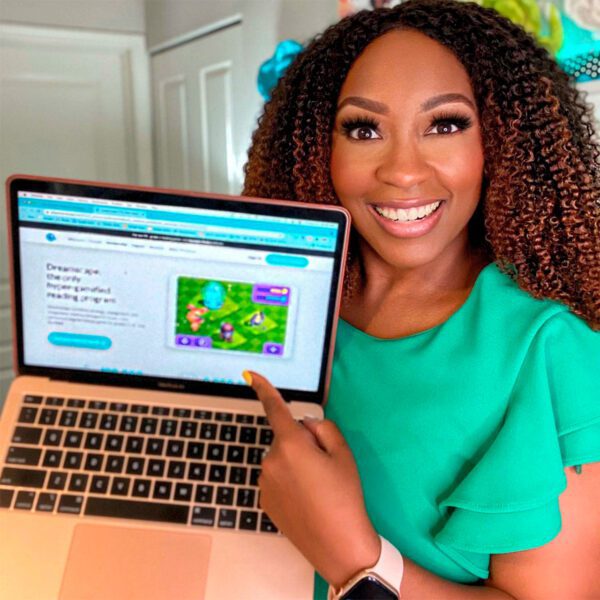The Algorithmic Classroom
South Korea’s ambitious experiment with AI in classrooms holds lessons for the world
Supporting growth of mission-driven startups through IMM

A startup’s success is always measured financially. As every entrepreneur knows, you have to keep the lights on until your operations drive the revenue needed to sustain the business you first imagined.
But as mission-driven startup leaders, we have another star to guide our way – our purpose.
That means, along with every business decision, we must consider: Does the product or service solve the problem we intend to solve? What broader social impact is being created? And, critically, how can we actually measure that impact?
Striking a balance between profit and purpose is often as challenging as it is critical. Startups in this space often struggle to understand what is expected of them in terms of impact measurement and management. They may lack the resources and knowledge to effectively collect, analyze, and report their impact data. This, in turn, can hinder their ability to secure new investments and build the credibility they need to do the important work they set out to accomplish.

Shoelace designed its tools so teachers can track learning, identify challenges and present assignments through the games kids love. Its games provide a multitude of opportunities for students to receive rewards based on their achievements. Students can be rewarded through answering questions correctly in-game, by receiving rewards from their teacher’s dashboard and much more.
For me, measuring impact was a number-one goal – and challenge – right from the start.
My company, Shoelace Learning, started with a vision to solve a major literacy crisis facing children across North America. It has since grown to embrace a much-wider mission – to build the muscles for critical and creative thinking our kids need to solve some of the big global problems we’re facing today and in the future.
Our startup does that by meeting youth where they are and with what they love: video games.
The effectiveness of the platform we’ve carefully created can’t just be a guess. Today we know that more than six million kids in 160 different countries are using our platform. It is designed primarily for educators to use in the classroom, but many parents have also implemented it at home. They need to trust that the time their kids are spending online is actually helping and not hurting them.
It’s why, about a year ago, we created an impact overview, outlining a hierarchy of needs that allows us to strategically build company profitability, while staying true to our purpose. In our case, we started with a commitment to be evidence-based, using research to drive our decisions and how we design the product. From there, we’ve moved up the pyramid to consider accessibility, creating a free version to get the platform to reach as many people as possible, then diversity and inclusivity of not just our content, but also the makeup of our team. We’re now at the point where we can invest financially in third-party studies to measure our efficacy and find ways for us to improve our platform and ensure kids learn more effectively.
With so much going on, we’ve been fortunate to find support in this journey through the TELUS Pollinator Fund for Good. The Pollinator Fund introduced us to the Pollinator Impact Navigation Tool, a resource specifically designed to support startups in measuring and managing their impact, and we’ve quickly become avid users.

Julia Dexter, the founder of Shoelace Learning, has defied great odds to become a successful entrepreneur. Her journey began when she was labeled “dumb” in fourth grade due to a speech impediment and reading struggles. Despite this, she found confidence in sports, became a national-level kayaker and Olympic athlete, and eventually launched her company with a vision to solve a major literacy crisis facing children across North America.
The tool assesses the readiness of portfolio companies in terms of impact measurement and management. It identifies priority areas for improvement and provides starter kit templates to help companies track their impact data. By leveraging the tool, startups can gain a better understanding of their impact and communicate it effectively to investors and stakeholders.
At Shoelace, we’ve successfully used the tool to ask the right questions around impact to determine what metrics are important and what data we need to collect to track them effectively. That includes critical metrics such as the numbers of kids and educators registered, hours of learning moments delivered to every player each month, how many questions they are answering on the platform and skills mastered per session. This way we know that the kids we are reaching are not just playing around, they’re engaging with the learning.
In fact, the more they engage with the platform, the more they improve their reading comprehension. Our studies have shown that 30 minutes of play per week over the course of 15 weeks can measurably increase the literacy skills of all learners. Ultimately, that means helping kids develop their critical thinking skills – the only way our future generations will go on to solve some of the world’s great challenges.
The impact navigation tool was developed specifically to assist companies like mine. It is fast and easy to use – that’s important for leaders who don’t have a lot of time, but care very much about what they’re building and the impact they’re having.
Of note, the fund is releasing the Pollinator Impact Navigation Tool as an open-source resource, enabling other impact investors to improve their operations and support their portfolio companies in measuring and managing impact.

Shoelace has built a world-class library and learning engine to personalize learning for each student. The design not only focused on measuring mastery of comprehension skills but also on the development of critical thinking. A game platform connects popular video games to learning, meeting youth where they are and with what they love.
With so many challenges to address in our complex world, those of us behind mission-driven startups welcome all the help we can get. By leveraging resources such as the impact navigation tool and sharing best practices, startups can enhance their impact practices and contribute to a friendlier future for us all.
Related Content
Comments
Deep Dives

Featuring
Clarisse Awamengwi
IE Correspondent
July 17 - 12:00 PM EST

Featuring
Russell McLeod
July 24 - 12:00 PM EST
RECENT
Editor's Picks
Webinars
News & Events
Subscribe to our newsletter to receive updates about new Magazine content and upcoming webinars, deep dives, and events.
Become a Premium Member to access the full library of webinars and deep dives, exclusive membership portal, member directory, message board, and curated live chats.
At Impact Entrepreneur, we champion fearless, independent journalism and education, spotlighting the inspiring changemakers building the Impact Economy. Diversity, equity, sustainability, and democracy face unprecedented threats from misinformation, powerful interests, and systemic inequities.
We believe a sustainable and equitable future is possible—but we can't achieve it without your help. Our independent voice depends entirely on support from changemakers like you.
Please step up today. Your donation—no matter the size—ensures we continue delivering impactful journalism and education that push boundaries and hold power accountable.
Join us in protecting what truly matters. It only takes a minute to make a real difference.
0 Comments